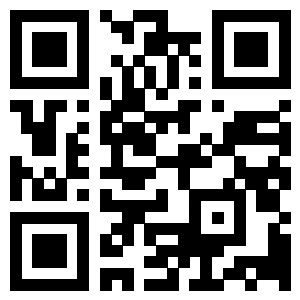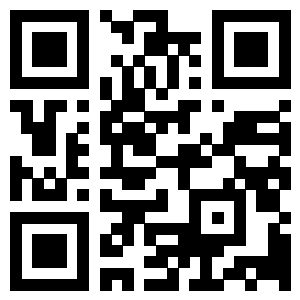2011六级语法辅导:助动词和情态动词用法
2011四六级
★ 英语六级考试写作提高必备10大功能句型
★ 2011六级考试听力对话一般性解题原则
★ 2011英语六级考试单词边练边记
★ 应对四六级考试写作词汇量不足3大措施
2010四六级
★ 2010年12月大学英语四级考试答案汇总
★ 2010年12月大学英语六级考试答案汇总
★ 名师解析2010年12月大学英语四级考试
★ 名师点评2010年12月六级 2大显著变化

2011四六级VIP全程班:早准备 早通关
1、 can 和be able to的区别。can在表示“能力”时与be able to同义。但是can的时态形式不如be able to多。在一般将来时和现在完成时中只能用be able to。如:
She will be able to dance in a week. 她再过一星期就会跳舞了。
Nobody has ever been able to do it. 从来没有人能够做这事。
在过去时中,could表示具备某种能力,但不一定做事;而was able to表示努力设法去做谋事,成功后说明有能力,相当managed to do或succeeded in doing。这时,could和was able to是不能互换的。例如:
When he was a boy, he could swim across the river in fifteen minutes. 他小时侯,15分钟就能游过那河。(could表示能力,但不一定这么做)
He was able to swim across the river in fifteen minutes last week.
=He managed to swim across the river in fifteen minutes last week.
=He succeeded in swimming across the river in fifteen minutes last week.
上周他15分钟就游过了那河。(was able to表示真这样做了,而且成功了。这里不能用could)
2、must与 have to的比较。 Must 强调主观意志,也就是说,必要性来自说话者的主观意志。 have to 强调客观因素。例如:
He must stop smoking. 他必须戒烟。(说话人认为他必须)
This is an awful film. ?We really must go. 这部电影糟透了-我们一定要离开这里。(说话人认为必须)
You have to go and see the boss. 你一定得去见见老板。(客观因素)
Catholics have to go to church on Sundays. 天主教徒星期天必须去做礼拜。(客观因素,如教规等 )
注意:must not表示“绝对不可”; don’t have to(或 haven’t got to )表示“不必,没必要”,两者意思极为不同。英国英语中常用needn’t来代替 haven’t got to 或don’t have to,如:
You mustn’t tell Jenny. =Don’t tell Jenny. 你一定不要告诉珍妮。
You don’t have to tell Jenny. =You can if you like but it isn’t necessary. 你不必非要告诉珍妮。
3、need 作为情态动词与行为动词的区别。作为情态动词,need 无过去式和将来时,故用had to, will have to替代,主要用在否定句、疑问句、条件句中,意思是“有必要”。例如:
He need not come at once. 他不必马上就来。
If you need go there, please tell me now. 如果你需要去那儿,请告诉我。
Need he come at once? 他必须马上回来吗?
(回答要用must, have to, ought to, should等。例如:Need he come at once? Yes, he must/ought to /should/has to. No, he needn’t /doesn’t have to /mustn’t.)needn’t have done表示“本来不必做某事而实际上已经做了”。例如:
We needn’t have waited for him. 我们本来不必等他的。(实际上已等他了)
用作实义动词时,need可用于肯定句、 否定句和疑问句,是“需要”之意。如:
You need to wash your hands. 你需要洗手。
Does he need to take the medicine four times a day? 他需要每日服药四次吗?
We didn’t need to see him at all. 我们根本不必要看他(实际上也没去看他,请比较needn’t have done的用法)
need做实义动词时,后面的宾语如果是动名词,用主动形式表示被动意义,如果是不定式的被动形式,来表示被动意义。类似need的这种用法,还有require, want等。例如:
The dinning room needs cleaning every day. =The dinning room needs to be cleaned every day. 食堂需要天天打扫。
My shoes need repairing. = My shoes need to be repaired. 我的鞋需要修理。
4、would与 used to 的区别 .would 可表示反复发生的动作或某种倾向。used to表示过去的习惯动作或状态,强调现在已不存在。例如:
She used to work into the night. 过去她常工作到深夜。(现在不了)
She would work into the might. 以前她常工作到深夜。(不表示现在不了)
People used to think that the sun went round the earth. 以前人们总认为太阳是围绕地球转的。(现在不这样认为了)
I used to smoke quite a lot, but I have given it up. 我过去抽烟很凶,现在戒了。
情态动词的重点和难点是:情态动词之间的区别;表示“推测”的表达方式;以及“情态动词+have+过去分词”的含义。

最后冲刺:名师团在线指导12月四六级备考
四级历年真题(2001-2009)
2001年1月 | 2001年6月 | 2002年1月 | 2002年6月 | 2003年1月 |
2003年6月 | 2003年9月 | 2004年1月 | 2004年6月 | 2005年1月 |
2005年6月 | 2005年12月 | 2006年6月 | 2006年12月 | 2007年6月 |
2007年12月 | 2008年6月 | 2008年12月 | 2009年6月 | 2009年12月 |
六级历年真题(2001-2009)
2001年1月 | 2001年6月 | 2002年1月 | 2002年6月 | 2003年1月 |
2003年6月 | 2003年9月 | 2004年1月 | 2004年6月 | 2005年1月 |
2005年6月 | 2005年12月 | 2006年6月 | 2006年12月 | 2007年6月 |
2007年12月 | 2008年6月 | 2008年12月 | 2009年6月 | 2009年12月 |
- 相关阅读
TOPS
- 日排行/
- 周排行/
- 原创
- 日排行/
- 周排行/
- 原创
- 1 无锡学院2022年6月英语六级准考证打印入口|时间:6月1日
- 2 2022年6月英语四级作文热门话题及范文:教育不公平
- 3 泰州学院2022年6月英语六级准考证打印入口|时间:6月1日
- 4 吉林四级考试时间2022年上半年
- 5 2022年6月英语四级作文热门话题及范文:网络游戏
- 6 宿迁学院2022年6月英语六级准考证打印入口|时间:6月1日
- 7 2022年6月英语四级作文热门话题及范文:电力短缺
- 8 苏州城市学院2022年6月英语六级准考证打印入口|时间:6月1日
- 9 2022年6月英语四级作文热门话题及范文:手机的利弊
- 10 常熟理工学院2022年6月英语六级准考证打印入口|时间:6月1日







